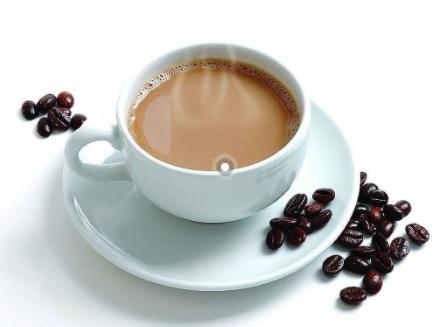Testicular Pain after Drinking Coffee? What's Going on?
Date:2022-10-27 click:0
Coffee is a common drink in people's daily life. Drinking coffee in moderation has many benefits for the human body. Coffee can increase the brain's excitability, slow the body's metabolism and relieve fatigue. But drinking coffee can not be excessive. Otherwise, it will cause calcium loss and aggravated cardiovascular and cerebrovascular diseases, seriously harming human health.

Some men may find it strange that they develop testicular pain after drinking coffee. Drinking coffee may be just a symptom. The actual causes may be inflammations of the genitourinary system or other reasons.
Moderate coffee consumption in men generally does not cause testicular pain. But what makes coffee so refreshing is its main ingredient, caffeine. Caffeine stimulates the sympathetic nerves. When the sympathetic nerves are stimulated, the person will be refreshed. When sympathetic nerve activity is high, the relatively weak parasympathetic nerve will be suppressed, clinically manifesting as a decrease in sexual desire and leading to male infertility.
At the same time, caffeine is a harmful substance for men's spermatogenic cells, and drinking coffee can lead to a decrease in the amount of sperm. Meanwhile, it may also affect the quality, motility, and rate of malformation of sperm. For the sake of health, men are not recommended to drink more coffee.
If testicular pain occurs, men should first consider whether it is caused by male inflammation. In this case, the first thing to do is to go to the hospital. Orchitis is a common cause of testicular pain. Bacterial or viral infection can be complicated with orchitis, showing testicular pain and swelling. Severe gonorrhea can cause orchitis, showing testicular pain and swelling; Chronic prostatitis can also cause testicular pain.
A prostatic fluid routine test and prostatic fluid culture can be done to clarify the types of pathogenic microorganisms and drug sensitivity and then choose the right therapy. If it is bacterial prostatitis, it should be treated with sensitive antibiotics for at least two weeks to kill the pathogenic microorganisms completely.
When the corresponding inflammation is cured, the testicular pain naturally disappears. It is recommended to use the traditional Chinese medicine Diuretic and Anti-inflammatory Pill. This pill has no side effects, and its antibacterial and anti-inflammatory effect is good.
The following conditions can also cause testicular pain:
1. Testicular torsion. This is one of the common emergencies in the scrotum. It can occur in newborns to older people 70 years old. Generally, patients have strenuous activities before the onset of the disease, or the testicle(s) have/has undergone external force. Some patients show nausea and vomiting, scrotal swelling, and significant tenderness.
2. Physical damage. Testicular injuries are primarily associated with exposure to violence, car accidents, etc. On physical examination, there is testicular swelling, poor contour, scrotal stasis, or significant tenderness.
3. Ischemic pain in the testicles. This is more common in older people. The pain is usually tense, aggravated by activity, and relieved by rest. Testicular atherosclerosis is often a local manifestation of systemic vascular legions. It is mostly unilateral, with the left side being more common than the right.
Therefore, when men drinking excessive coffee experience testicular pain, they should reduce or even stop drinking coffee. If the symptom doesn't go away, examine whether there is external damage to the testicles or prostate. If not, go to the hospital for tests to determine the cause of the pain. With symptomatic treatments, diseases can be identified and treated.
You may also be interested in:



